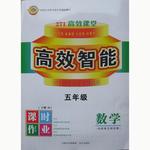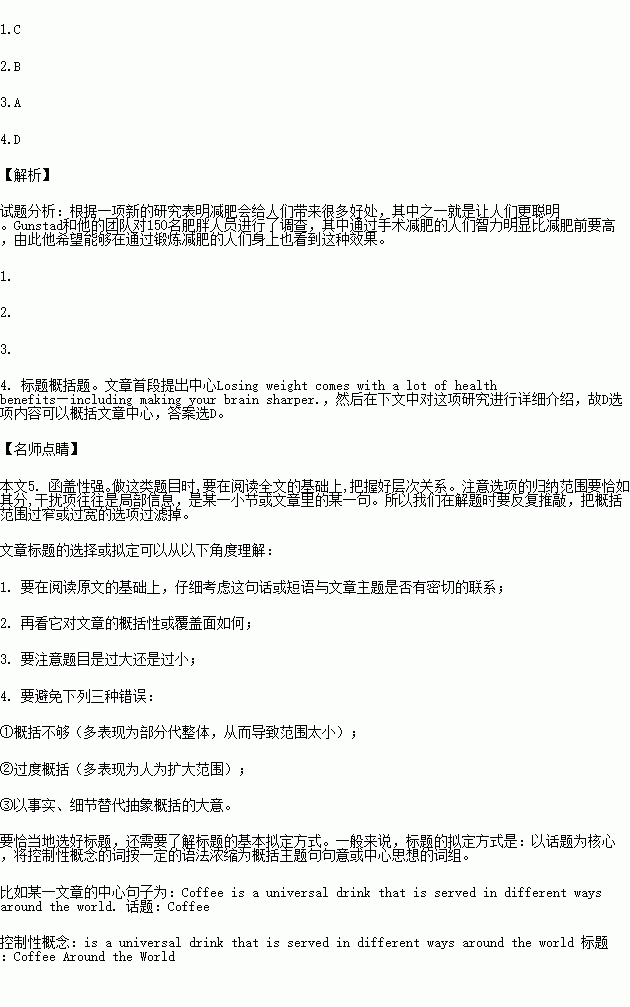题目内容
Losing weight comes with a lot of health benefits—including making your brain sharper.
There have been few studies of overweight and cognitive functioning, (认知功能) possibly because it is generally believed that it is not a primary risk cause for poor cognitive performance. Yet, it turns out that overweight may damage cognitive functions such as memory and attention. Losing weight, therefore, may help improve these mental functions, according to a new research led by John Gunstad, assistant professor of psychology at Kent State University.
Growing evidence suggests that being fat is linked to cognitive deficits (缺陷). So Gunstad and his team guessed that losing weight might improve mental function. For their study, they measured memory and attention in a group of 150 overweight participants, some of whom had some kind of operation for weight loss and some did not. All of the volunteers completed mental skills tests to assess their abilities of memory and attention at the beginning of the study, and again 12 weeks later. To begin with, about 24% of the patients showed damaged learning and 23% showed signs of poor memory when tested. At the end of the study, those who had lost weight after operation improved their scores into the average or above average range for cognitive functions. Scores for the volunteers who didn’t lose weight dropped even further.
The study helped Gunstad to find out whether losing weight had any effect on mental function. Now that he’s seen the positive effect that weight loss can have on memory and attention, he says he will next study those who choose to lose weight by the traditional way—eating healthier and getting more active. He expects that losing weight in this way will have a similarly positive effect on the brain. “If we can improve the condition with operations, then we can probably produce the same change with behavioral weight loss as well,” he says.
1.There is less research on overweight and cognitive functions because researchers _____.
A. believe overweight only affects our body
B. have focused on ways to sharpen people’s mind
C. do not consider overweight a main cause for low cognitive ability
D. are clear about the relation between weight and mental functions
2.The result of Gunstad’s study shows that ______.
A. losing weight has little effect on people’s memory
B. losing weight can improve people’s mental functions
C. overweight people are likely to have psychology problems
D. overweight people’s abilities of concentration differ greatly
3.What is Gunstad planning to prove next in his research?
A. Overweight people will get smarter by taking more exercise.
B. Healthy diet is better than exercise in losing weight.
C. Traditional ways of losing weight are better than operation.
D. Slim people are smarter than overweight people.
4.Which of the following is the best title for the text?
A. Body Weight and Health
B. Losing Weight by Operation
C. Ways to Improve Mental Functions
D. Losing Weight to Sharpen Your Mind
 高效智能课时作业系列答案
高效智能课时作业系列答案
